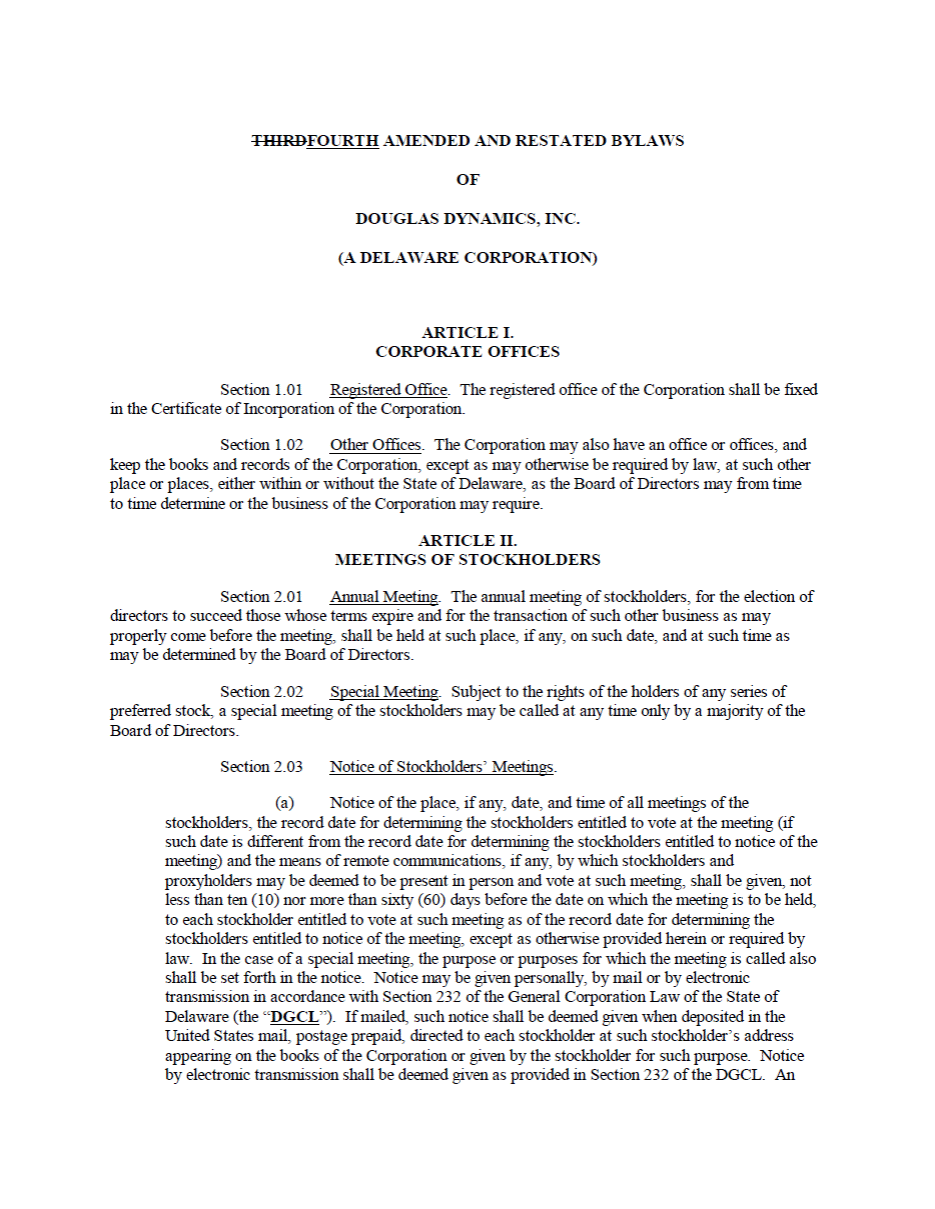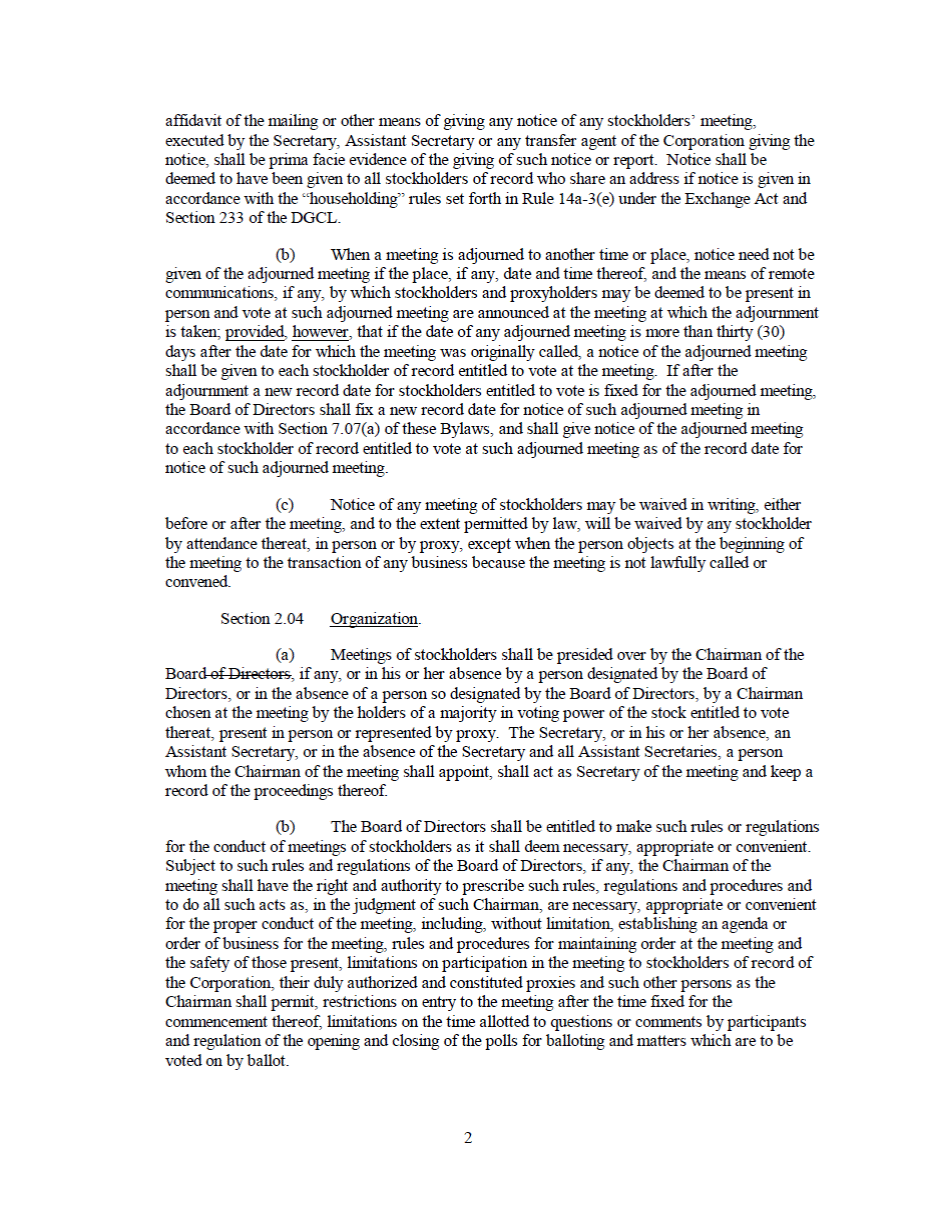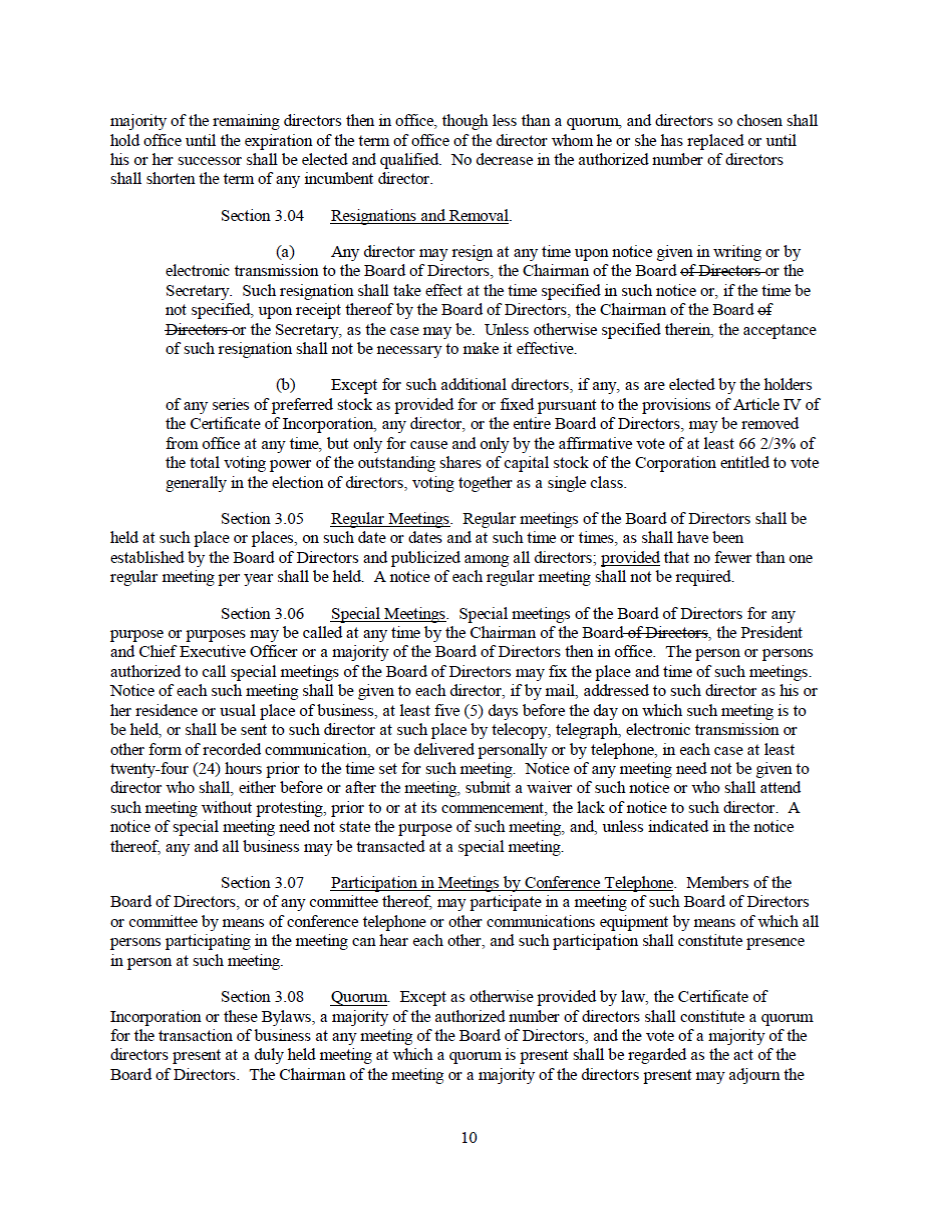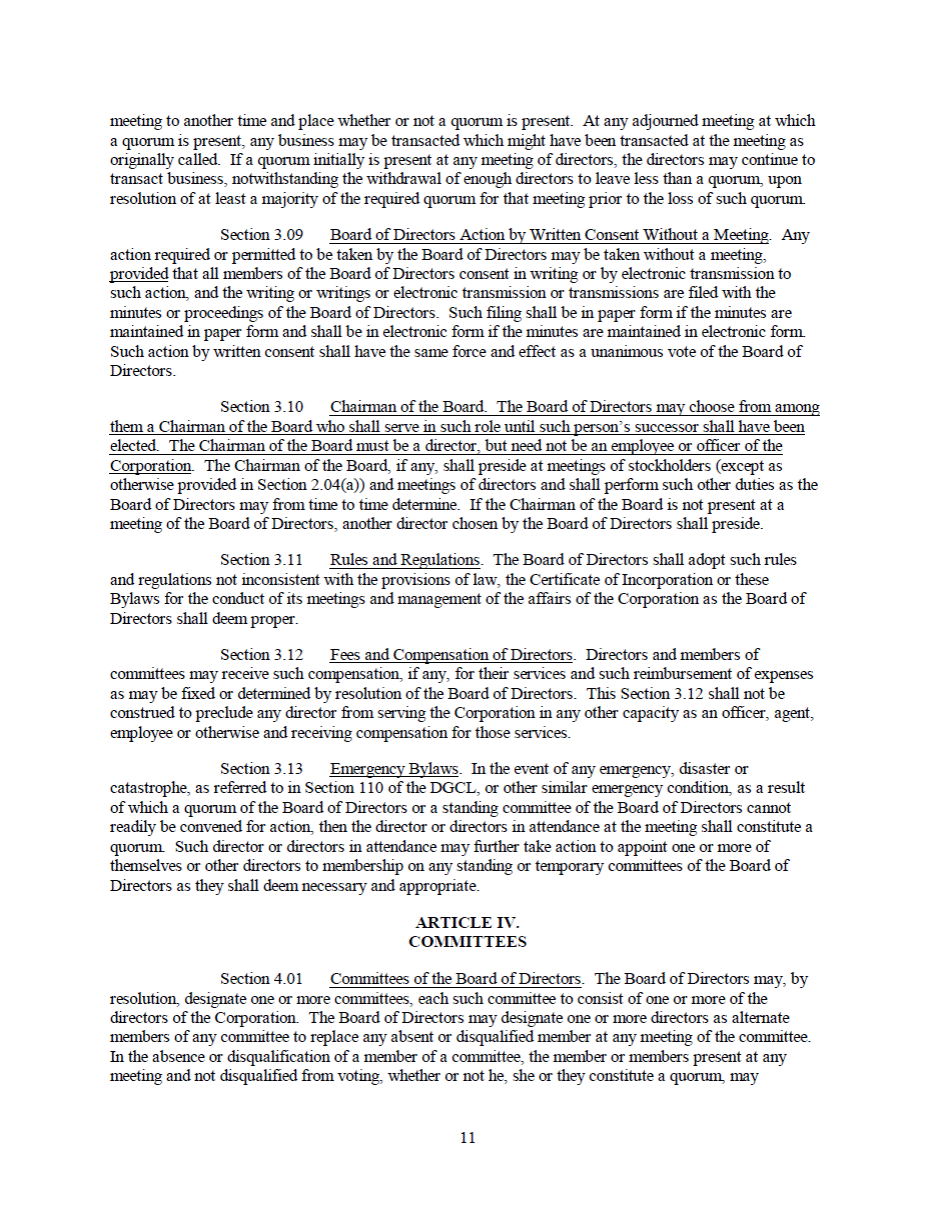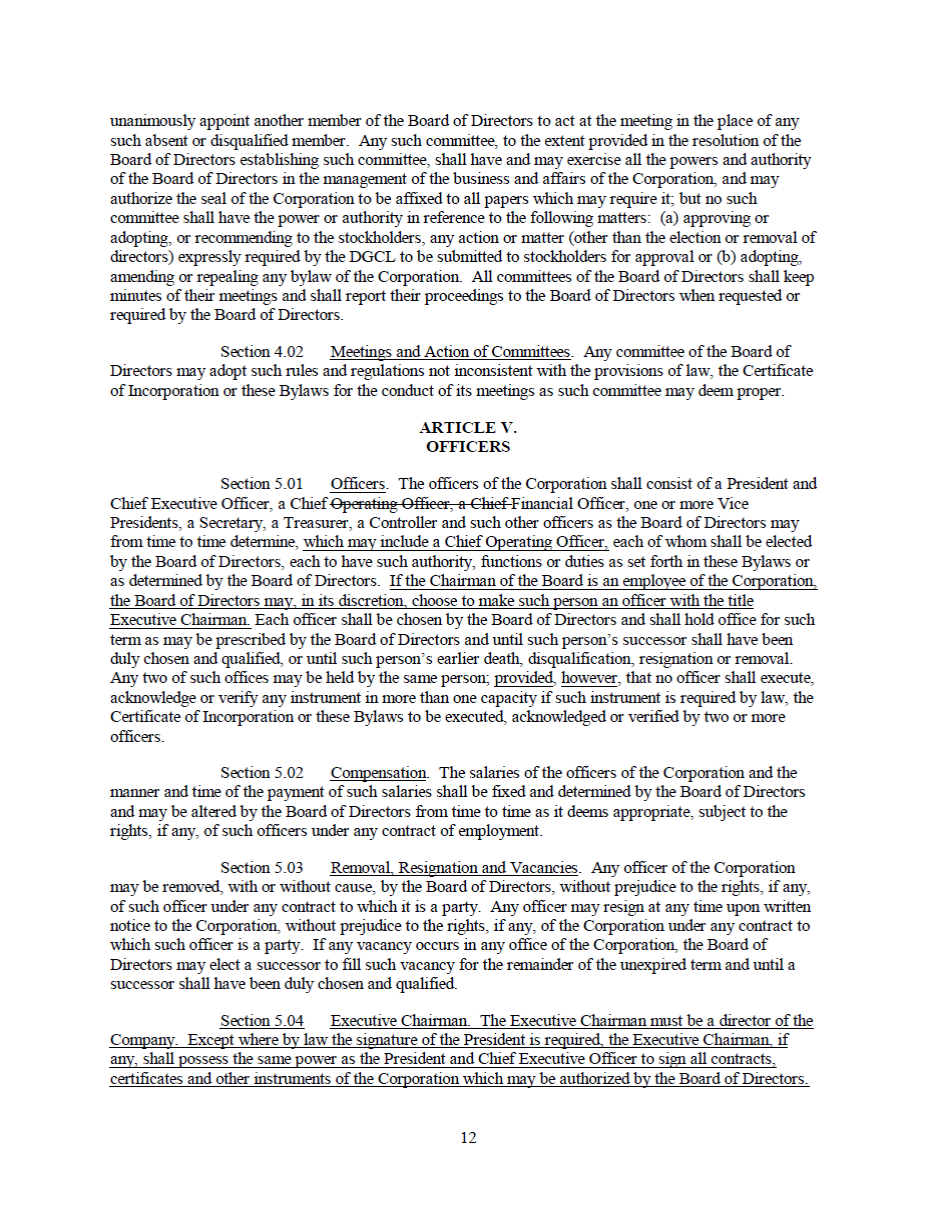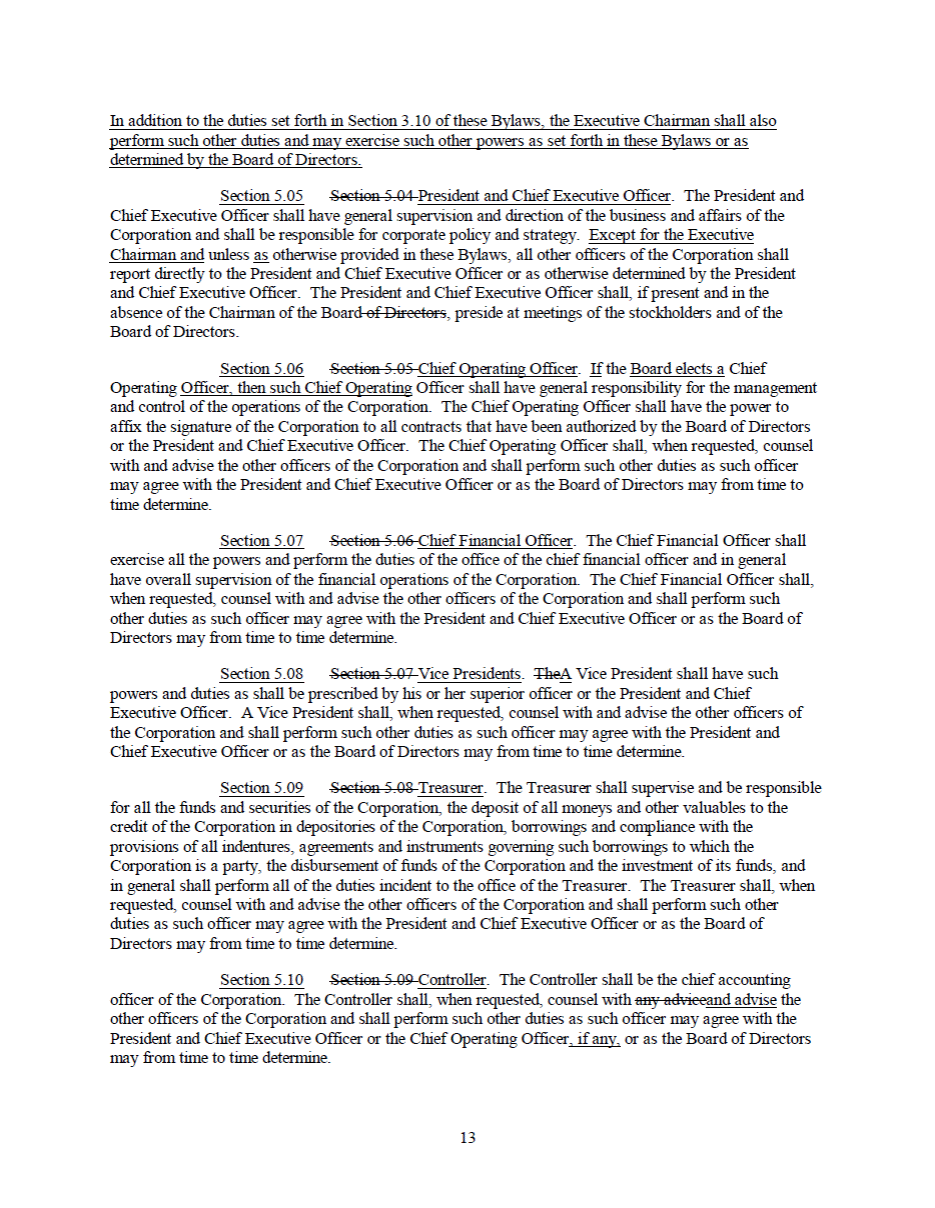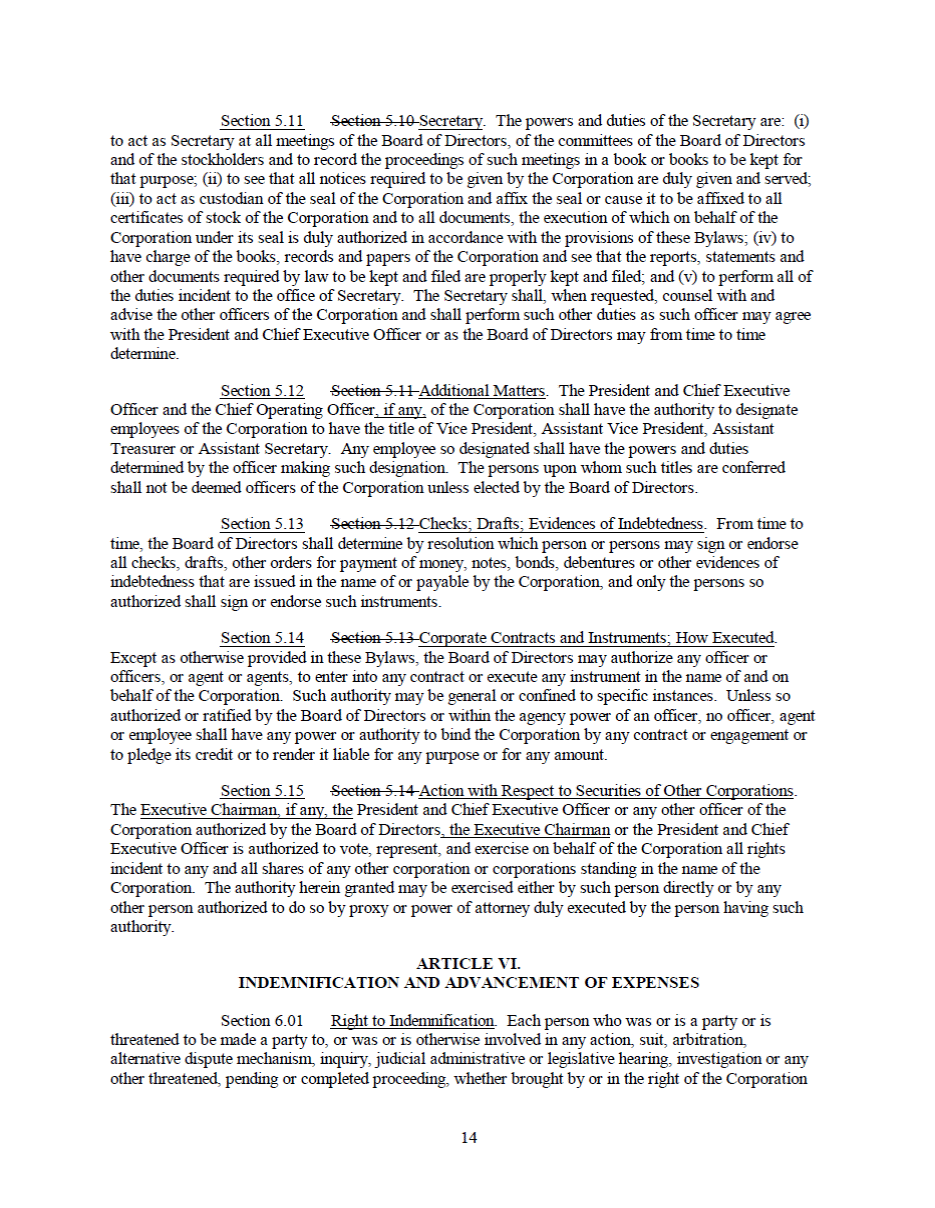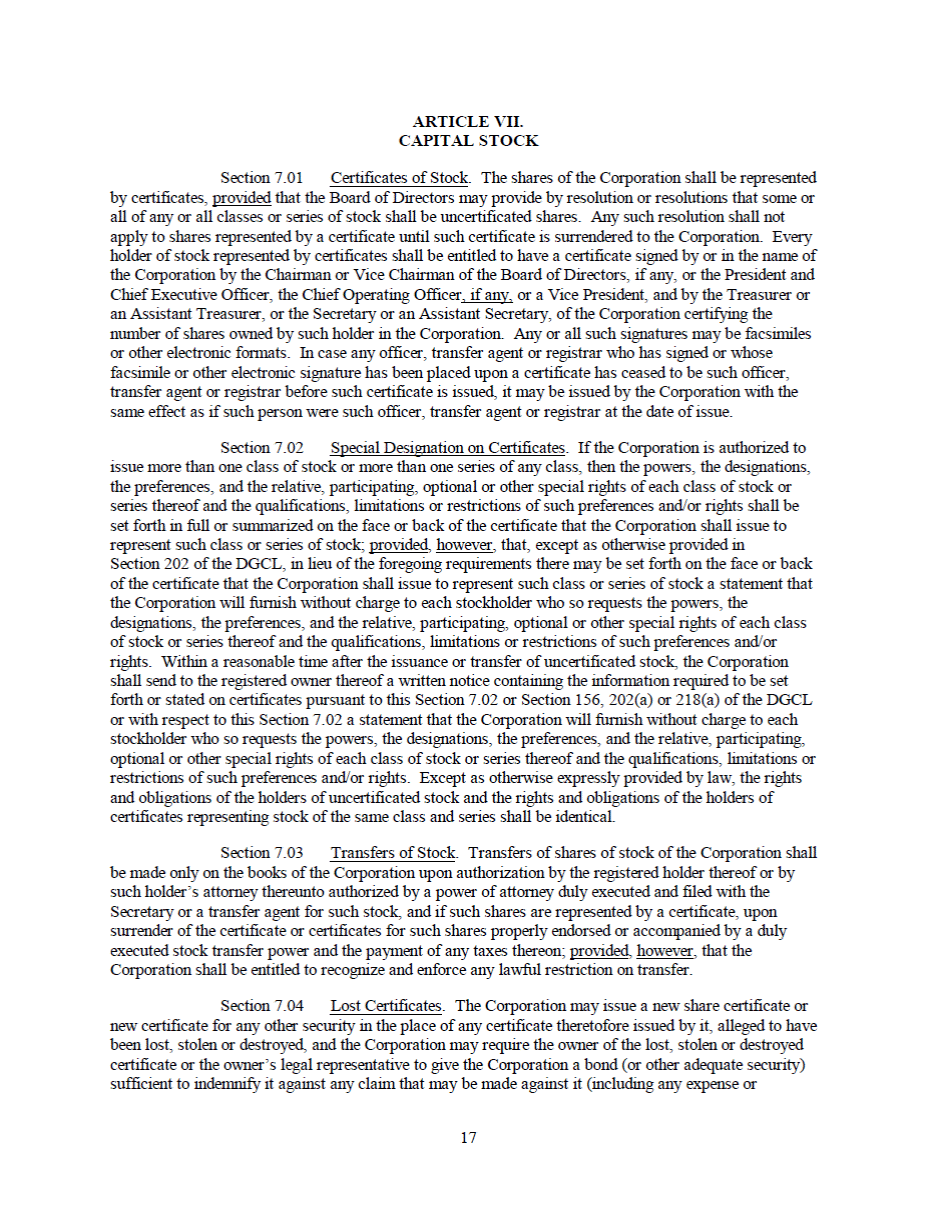THIRDFOURTH AMENDED AND RESTATED BYLAWS OF DOUGLAS DYNAMICS, INC. (A DELAWARE CORPORATION) ARTICLE I. CORPORATE OFFICES Section 1.01 Registered Office. The registered office of the Corporation shall be fixed in the Certificate of Incorporation of the Corporation. Section 1.02 Other Offices. The Corporation may also have an office or offices, and keep the books and records of the Corporation, except as may otherwise be required by law, at such other place or places, either within or without the State of Delaware, as the Board of Directors may from time to time determine or the business of the Corporation may require. ARTICLE II. MEETINGS OF STOCKHOLDERS Section 2.01 Annual Meeting. The annual meeting of stockholders, for the election of directors to succeed those whose terms expire and for the transaction of such other business as may properly come before the meeting, shall be held at such place, if any, on such date, and at such time as may be determined by the Board of Directors. Section 2.02 Special Meeting. Subject to the rights of the holders of any series of preferred stock, a special meeting of the stockholders may be called at any time only by a majority of the Board of Directors. Section 2.03 Notice of Stockholders’ Meetings. (a) Notice of the place, if any, date, and time of all meetings of the stockholders, the record date for determining the stockholders entitled to vote at the meeting (if such date is different from the record date for determining the stockholders entitled to notice of the meeting) and the means of remote communications, if any, by which stockholders and proxyholders may be deemed to be present in person and vote at such meeting, shall be given, not less than ten (10) nor more than sixty (60) days before the date on which the meeting is to be held, to each stockholder entitled to vote at such meeting as of the record date for determining the stockholders entitled to notice of the meeting, except as otherwise provided herein or required by law. In the case of a special meeting, the purpose or purposes for which the meeting is called also shall be set forth in the notice. Notice may be given personally, by mail or by electronic transmission in accordance with Section 232 of the General Corporation Law of the State of Delaware (the “DGCL”). If mailed, such notice shall be deemed given when deposited in the United States mail, postage prepaid, directed to each stockholder at such stockholder’s address appearing on the books of the Corporation or given by the stockholder for such purpose. Notice by electronic transmission shall be deemed given as provided in Section 232 of the DGCL. An 4832-0994-3628.2
